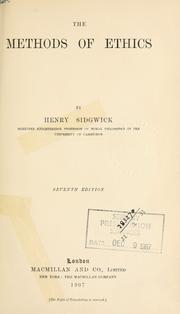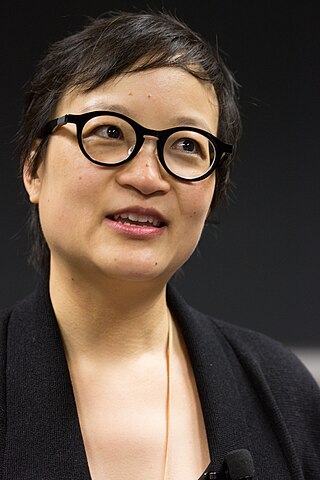Related Research Articles
Applied ethics refers to the practical aspect of moral considerations. It is ethics with respect to real-world actions and their moral considerations in the areas of private and public life, the professions, health, technology, law, and leadership. For example, the bioethics community is concerned with identifying the correct approach to moral issues in the life sciences, such as euthanasia, the allocation of scarce health resources, or the use of human embryos in research. Environmental ethics is concerned with ecological issues such as the responsibility of government and corporations to clean up pollution. Business ethics includes questions regarding the duties or duty of 'whistleblowers' to the general public or their loyalty to their employers.

Ethics or moral philosophy is a branch of philosophy that "involves systematizing, defending, and recommending concepts of right and wrong behavior". The field of ethics, along with aesthetics, concerns matters of value; these fields comprise the branch of philosophy called axiology.
In metaphilosophy and ethics, metaethics is the study of the nature, scope, and meaning of moral judgment. It is one of the three branches of ethics generally studied by philosophers, the others being normative ethics and applied ethics.
Moral realism is the position that ethical sentences express propositions that refer to objective features of the world, some of which may be true to the extent that they report those features accurately. This makes moral realism a non-nihilist form of ethical cognitivism with an ontological orientation, standing in opposition to all forms of moral anti-realism and moral skepticism, including ethical subjectivism, error theory ; and non-cognitivism. Within moral realism, the two main subdivisions are ethical naturalism and ethical non-naturalism.
Reflective equilibrium is a state of balance or coherence among a set of beliefs arrived at by a process of deliberative mutual adjustment among general principles and particular judgements. Although he did not use the term, philosopher Nelson Goodman introduced the method of reflective equilibrium as an approach to justifying the principles of inductive logic. The term reflective equilibrium was coined by John Rawls and popularized in his A Theory of Justice as a method for arriving at the content of the principles of justice.
Ethical intuitionism is a view or family of views in moral epistemology. It is foundationalism applied to moral knowledge, the thesis that some moral truths can be known non-inferentially. Such an epistemological view is by definition committed to the existence of knowledge of moral truths; therefore, ethical intuitionism implies cognitivism.

Moral nihilism is the meta-ethical view that nothing is objectively morally right or morally wrong.

Evolutionary ethics is a field of inquiry that explores how evolutionary theory might bear on our understanding of ethics or morality. The range of issues investigated by evolutionary ethics is quite broad. Supporters of evolutionary ethics have claimed that it has important implications in the fields of descriptive ethics, normative ethics, and metaethics.
Philosophy is the study of general and fundamental problems concerning matters such as existence, knowledge, values, reason, mind, and language. It is distinguished from other ways of addressing fundamental questions by being critical and generally systematic and by its reliance on rational argument. It involves logical analysis of language and clarification of the meaning of words and concepts.
Metaepistemology is the branch of epistemology and metaphilosophy that studies the underlying assumptions made in debates in epistemology, including those concerning the existence and authority of epistemic facts and reasons, the nature and aim of epistemology, and the methodology of epistemology.

Thomas Michael "Tim" Scanlon, usually cited as T. M. Scanlon, is an American philosopher. At the time of his retirement in 2016, he was the Alford Professor of Natural Religion, Moral Philosophy, and Civil Polity in Harvard University's Department of Philosophy, where he had taught since 1984. He was elected to the American Philosophical Society in 2018.

Geoffrey Sayre-McCord is an American philosopher who works in moral theory, ethics, meta-ethics, the history of ethics, and epistemology. He teaches at the University of North Carolina, Chapel Hill. He is also the director of the Philosophy, Politics and Economics Society.
Moral rationalism, also called ethical rationalism, is a view in meta-ethics according to which moral principles are knowable a priori, by reason alone. Some prominent figures in the history of philosophy who have defended moral rationalism are Plato and Immanuel Kant. Perhaps the most prominent figure in the history of philosophy who has rejected moral rationalism is David Hume. Recent philosophers who have defended moral rationalism include Richard Hare, Christine Korsgaard, Alan Gewirth, and Michael Smith.

R. Jay Wallace is a Professor of Philosophy and Judy Chandler Webb Distinguished Chair for Innovative Teaching and Research at the University of California, Berkeley. His areas of specialization include moral philosophy and philosophy of action. He is most noted for his work on practical reason, moral psychology, and meta-ethics.
Ethics or moral philosophy is a branch of philosophy that involves systematizing, defending, and recommending concepts of right and wrong conduct. The field of ethics, along with aesthetics, concern matters of value, and thus comprise the branch of philosophy called axiology.

The Methods of Ethics is a book on ethics first published in 1874 by the English philosopher Henry Sidgwick. The Stanford Encyclopedia of Philosophy indicates that The Methods of Ethics "in many ways marked the culmination of the classical utilitarian tradition." Noted moral and political philosopher John Rawls, writing in the Forward to the Hackett reprint of the 7th edition, says Methods of Ethics "is the clearest and most accessible formulation of ... 'the classical utilitarian doctrine'". Contemporary utilitarian philosopher Peter Singer has said that the Methods "is simply the best book on ethics ever written."

Pragmatic ethics is a theory of normative philosophical ethics and meta-ethics. Ethical pragmatists such as John Dewey believe that some societies have progressed morally in much the way they have attained progress in science. Scientists can pursue inquiry into the truth of a hypothesis and accept the hypothesis, in the sense that they act as though the hypothesis were true; nonetheless, they think that future generations can advance science, and thus future generations can refine or replace their accepted hypotheses. Similarly, ethical pragmatists think that norms, principles, and moral criteria are likely to be improved as a result of inquiry.
Ethics is, in general terms, the study of right and wrong. It can look descriptively at moral behaviour and judgements; it can give practical advice, or it can analyse and theorise about the nature of morality and ethics.

Ruth Chang is the Professor and Chair of Jurisprudence at the University of Oxford, a Professorial Fellow of University College, Oxford, and an American professor of philosophy. She was previously a professor at Rutgers University from 1998 to 2019. She is known for her research on the incommensurability of values and on practical reason and normativity. She is also widely known for her work on decision-making and is lecturer or consultant on choice at institutions ranging from video-gaming to pharmaceuticals, the U.S. Navy, World Bank, and CIA.
Sharon Street is a Professor of Philosophy and Chair of the Department of Philosophy at New York University. She specializes in metaethics, focusing in particular on how to reconcile our understanding of normativity with a scientific conception of the world.
References
- ↑ "Moral Constructivism". philpapers.org. Retrieved 4 December 2018.